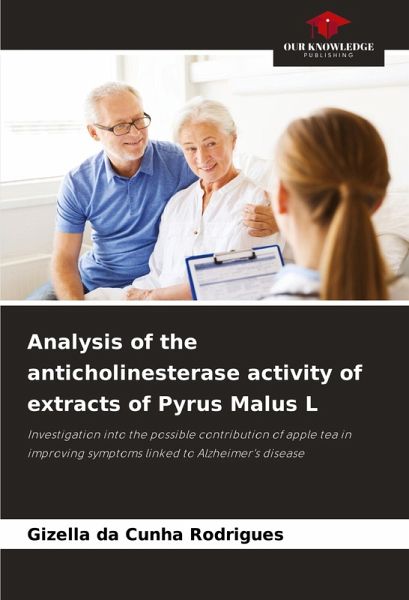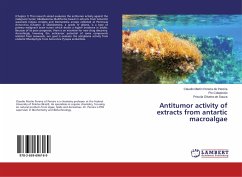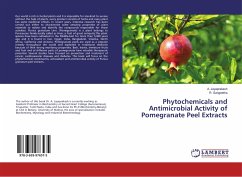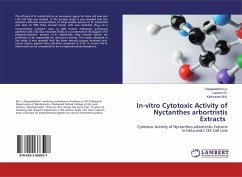
Analysis of the anticholinesterase activity of extracts of Pyrus Malus L
Investigation into the possible contribution of apple tea in improving symptoms linked to Alzheimer's disease
Versandkostenfrei!
Versandfertig in 6-10 Tagen
19,99 €
inkl. MwSt.

PAYBACK Punkte
10 °P sammeln!
Alzheimer's disease is a neurodegenerative illness that affects a large proportion of the world's population. The pathogenesis is based on progressive psychomotor and cognitive neurodegeneration, mainly in the hippocampus and frontal cortex, whose biochemical basis is believed to be the extracellular deposition of the beta-amyloid peptide in senile plaques and the consequent formation of abnormal intracellular neurofibrils. Intracellularly, the decrease in cholinergic synapses is a notable factor in the development of the disease. Numerous studies have been carried out in order to discover pot...
Alzheimer's disease is a neurodegenerative illness that affects a large proportion of the world's population. The pathogenesis is based on progressive psychomotor and cognitive neurodegeneration, mainly in the hippocampus and frontal cortex, whose biochemical basis is believed to be the extracellular deposition of the beta-amyloid peptide in senile plaques and the consequent formation of abnormal intracellular neurofibrils. Intracellularly, the decrease in cholinergic synapses is a notable factor in the development of the disease. Numerous studies have been carried out in order to discover potential drug candidates for the treatment of this neurodegenerative disorder, among which acetylcholinesterase inhibitors stand out. The aim of this study was therefore to understand the possible anticholinesterase action of the aqueous and methanolic extracts of Pyrus malus L. based on spectrophotometric analysis and to identify the possible agents of this activity.












